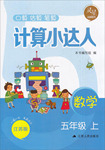题目内容
阅读理解。
For most people, the word "fashion" means "clothes", and people may ask the question," What clothes
are in fashion this year?" And they often use the word"fashionable" in the same way.."She was wearing a
fashionable coat," or "His shirt is really a fashionable color."
Of course there are fashions in many things, not only in clothes. There are fashions in holidays, in
restaurants, in films and in books. There are even fashions in school subjects, jobs and in languages.
Fashions change as time goes by. If you look at pictures of people or things from the past, you will see
that fashions have always changed. An English hduse of 1750 was not the same as one of 1650. A fashionable
man in 1780 looked very different from his grandson in 1860.
Today fashions change very quickly. Some of this is natural. We hear about things much more quickly
than in the past. Newspapers, radios, telephones and televisions can now send information from one country
to another within a few hours.
New fashions mean that people will buy new things r so, as you can see, there is a lot of money in fashion.
are in fashion this year?" And they often use the word"fashionable" in the same way.."She was wearing a
fashionable coat," or "His shirt is really a fashionable color."
Of course there are fashions in many things, not only in clothes. There are fashions in holidays, in
restaurants, in films and in books. There are even fashions in school subjects, jobs and in languages.
Fashions change as time goes by. If you look at pictures of people or things from the past, you will see
that fashions have always changed. An English hduse of 1750 was not the same as one of 1650. A fashionable
man in 1780 looked very different from his grandson in 1860.
Today fashions change very quickly. Some of this is natural. We hear about things much more quickly
than in the past. Newspapers, radios, telephones and televisions can now send information from one country
to another within a few hours.
New fashions mean that people will buy new things r so, as you can see, there is a lot of money in fashion.
1. From this passage we know that "fashion" means _________.
A. new clothes only
B. popular things
C. everything
B. popular things
C. everything
2. Which of the following things is fashionable today?
A. Surfing on the Internet.
B. An English house of 1650.
C. Clothes made in 1780.
B. An English house of 1650.
C. Clothes made in 1780.
3. Today fashions change very quickly because ________.
A. radios send information from one country to another within several days
B. new things that people like are not often shown on TV
C. people can quickly learn what is happening in the world
B. new things that people like are not often shown on TV
C. people can quickly learn what is happening in the world
4. "There is money in fashion" means ________.
A. money can be made in fashion.
B. people like new things
C. People will spend much money buying new things
B. people like new things
C. People will spend much money buying new things
5. What is the best title for this passage?
A. Fashions and Clothes
B. What Is Fashion?
C. Money in Fashion
B. What Is Fashion?
C. Money in Fashion
1-5 BACCB

练习册系列答案
 灵星计算小达人系列答案
灵星计算小达人系列答案
相关题目
1. From the passage we know that fresh water ________.
[ ]
A. is needed in every country
B. can be found in many factories
C. can be used in many ways
D. is very important for factories.
B. can be found in many factories
C. can be used in many ways
D. is very important for factories.
2. What is the writer mainly talking about in the passage?
[ ]
A. Hot places and dry places.
B. The ways of making fresh water from sea water.
C. How to make good use fo the sun.
D. Water-making factories in different countries.
B. The ways of making fresh water from sea water.
C. How to make good use fo the sun.
D. Water-making factories in different countries.
3. The Symi factory __________ .
[ ]
A. is a fresh water-making factory
B. can be built everywhere
C. can make much fresh water at a time
D. does not need sunshine every day
B. can be built everywhere
C. can make much fresh water at a time
D. does not need sunshine every day
4. Which is the best way for small and hot places to get fresh water?
[ ]
A. Boiling or heating the sea water.
B. The way in hotter and drier places.
C. The Symi's way
D. Freezing the sea water in cold places.
B. The way in hotter and drier places.
C. The Symi's way
D. Freezing the sea water in cold places.
5. Why aren't there many factories like the Symi factory?
[ ]
A. Because mny new ways are tried to get fresh in small, hot places.
B. Because a lot of water can be made quickly by heating in any places.
C. Because people think that the best way is to get more fresh water with the least money.
D. Because the Symi's way does not work in dry places.
B. Because a lot of water can be made quickly by heating in any places.
C. Because people think that the best way is to get more fresh water with the least money.
D. Because the Symi's way does not work in dry places.
